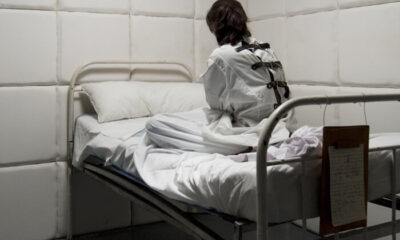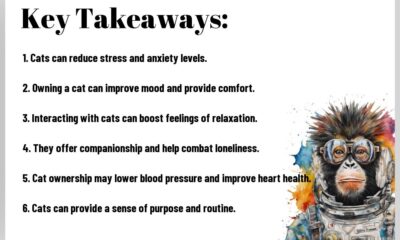Health & Society
A second brain? The human body is a marvel
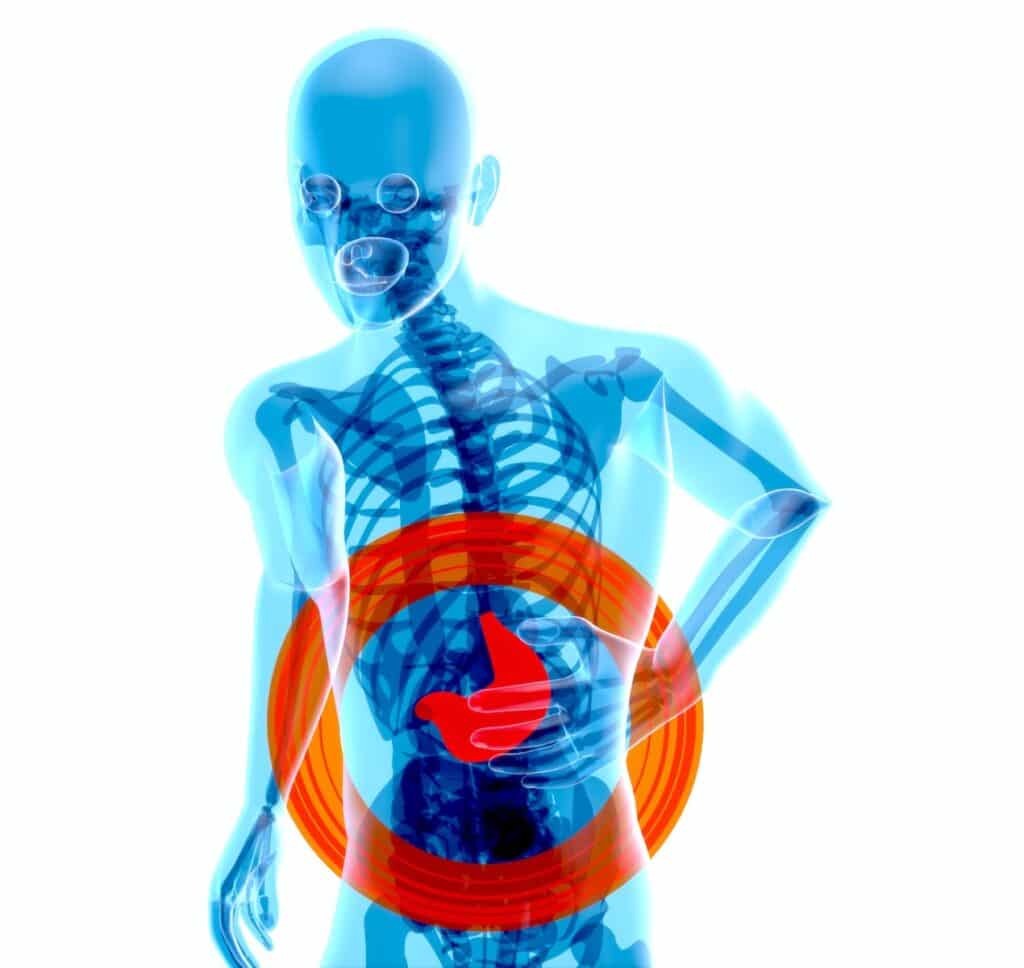
As we age, our bodies grow and develop. You probably don’t know many interesting facts about the human body. The Chinese publication Sohu writes that the human body is a miracle. It is unique.
Scientists discovered a “new” organ in our immune system a few months ago. It is located in front of lymph nodes. It can “remember” every disease a person has ever had and record our vital signs like an intelligent machine. This is not our only amazing body property. You may not have heard of many other amazing properties.
Our body is taller at dawn
Our spine is usually 1-2 cm longer when we wake up in the morning because it is cartilage. We become “lower” under the influence of gravity. When we lie down at night, the spine stretches out and lengthens. This phenomenon is known as reverse compression, according to Dr. Jerry Wells.
In a state where the heart is weightless, it is rounded
We all believe that the heart can only beat, and only its frequency of contractions changes. In fact, the size of a heart can change under certain circumstances. In weightlessness, the heart’s muscle mass, volume, and shape are all affected. According to studies conducted by American astronauts, our hearts can “round” up by 9.4% under such conditions.

Stomach acid can digest the stomach itself
The concentration of stomach acids is so high, that it can actually digest the stomach. This substance is so powerful that it can dissolve even a razorblade. When the destructive function becomes more aggressive than stomach lining, we can develop ulcers.
The heartbeat mimics what we hear
Our heart beats at a rate of 60-200 beats a minute, which is the same rhythm as most songs that we listen to. Our hearts can therefore “imitate” music.
Our bodies can glow at night
You’ll be surprised to learn that our body can glow in the darkness. It’s just the light emitted is 1000 times weaker then what our eyes are able to capture. We can’t see it.
Our body can produce alcohol on its own
Our bodies are unique, and they can do strange things. Some people can even make their alcohol. Some people become “drunk” when they eat certain carbs. It is because their stomachs are unable to metabolize the sugar into carbohydrates. Instead, an intense fermentation occurs inside the body, which results in ethanol formation and makes a person drunk.
Ears and tongues have the same uniqueness as fingerprints
The technology of fingerprint recognition was developed a long time back and is based upon their uniqueness. British scientists have found that a person’s ears can be used to identify them with a level of accuracy as high as 99.6%. In the future, we may be able unlock mobile phones using the earlobe.
Every minute 300 million cells die in our body
The number of cells in our body cannot be counted. Did you know that our body metabolizes 300 million cells every minute? This number is actually only 0.0001%.
Temperature can affect taste
Scientists have proved that our perceptions of taste are influenced by temperature. For example, sour tastes are more prominent at high temperatures while bitter tastes are more noticeable at lower temperatures. Coffee can also taste bitter if it’s too hot.
There are six flavors in addition to the five already mentioned.
We are all familiar with the five basic taste categories: sour, sweet, spicy, and salty. Umami is the sixth taste. This is the taste that comes from foods rich in protein, such as meat and seafood. Our receptors can perceive it as a distinct taste.
We have a second mind
Do humans have only one brain? Not really. Scientists from an Australian university once concluded that there was a second brain inside our gut. Or, rather, it should be called the “first” because it developed earlier than the cerebral cortex. The gastrointestinal tract is actually the only body part with its own nervous systems that can function without brain controls – the digestive process is therefore completely automated.
Now you know 11 interesting facts revealed by scientists about the body. There are many more hidden miracles in our complex organism. We haven’t even begun to explore all the wonders of our complex organism. Take care of yourself because there are so many things that we don’t know about our bodies.
Photo by Tima Miroshnichenko: https://www.pexels.com/photo/brain-image-on-digital-tablet-6010927/
Health & Society
Sexual abuse, electric shocks, chemical restraints in Mental Health Care, report finds
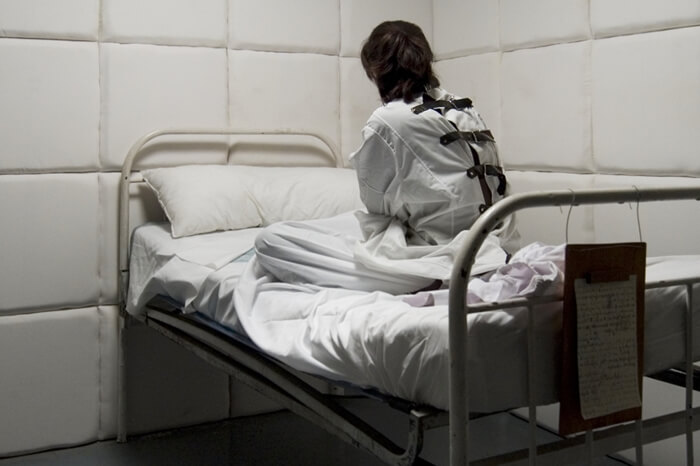
A disclosure by New Zealand’s Royal Commission has exposed a distressing past of mistreatment within its mental health and behavioral facilities impacting 200,000 children and vulnerable individuals.
“For some people it meant years or even decades of frequent abuse and neglect. For some it was a lifetime; for others, an unmarked grave,” the report stated.
This thorough investigation spanning six years with a price tag of $101 million has revealed the abuse and neglect that transpired under the pretext of mental healthcare. The revelations have reverberated globally, sparking calls of patients’ rights groups for improvements in mental health services worldwide, particularly in Europe.
Reality of sexual abuse, electric shocks, chemical restraints
The Royal Commissions publication titled “Whanaketia – Through pain and trauma from darkness to light” sheds light on a reality of sexual abuse, electric shocks, chemical restraints, medical trials and other forms of maltreatment. Survivors who have awaited recognition were finally assured by Prime Minister Christopher Luxon that “Your voices are heard and your experiences acknowledged.” The governments acknowledgment of these atrocities as torture marks a step towards justice and recovery for those affected.
“reality of sexual abuse, electric shocks, chemical restraints, medical trials and other forms of maltreatment”
The Citizens Commission on Human Rights (CCHR) in New Zealand has been instrumental in advocating for survivors and documenting abuses since 1977 including instances, like the therapy administered to children at the now shuttered Lake Alice Psychiatric Hospital.
“Many survivors died while under guardianship, or by suicide after receiving guardianship. For others, the effects of the abuse persist and worsen, making their daily activities and choices difficult,” the report adds. The country’s prime minister, Christopher Luxon, called it a “dark and sad day in New Zealand’s history as a society,” stating that “we should have done better, and I am determined that we will“, reports the BBC.
Survivors may receive compensation amounting to NZ$1.2 billion ( NZ$2 billion) shedding light on the magnitude of the injustice.
According to Jan Eastgate, President of CCHR International the report’s global ramifications are significant as similar abuses have been documented in the United States and other nations. We could mention Germany, France, Spain, Switzerland and others too. The inquiry’s conclusions echo those of a U.S. Senate inquiry into misconduct in behavioral institutions underscoring the pressing need for international reforms.
The revelations from New Zealand serve as a reminder of the potential for mistreatment within psychiatric healthcare systems.
Some of the New Zealand report recommendations
- Recommendation 33: The Ministry of Justice, Te Kura Kaiwhakawā Institute of Judicial Studies, NZ Police, the Crown Law Office, the New Zealand Law Society and other relevant legal professional bodies should ensure that investigators, prosecutors, lawyers, and judges receive education and training from relevant subject matter experts on:
a. the Inquiry’s findings, including on the nature and extent of abuse and neglect in care, the pathway from care to custody, and the particular impacts on survivors of abuse and neglect experienced in care
b. trauma-informed investigative and prosecution processes
c. all forms of discrimination
d. engaging with neurodivergent people …
e. human rights concepts, including the obligations under the Convention on the Rights of Persons with Disabilities, the Convention on the Rights of the Child, the Convention on the Elimination of All Forms of Discrimination against Women, the Convention on the Elimination of All Forms of Racial Discrimination, and the United Nations Declaration on the Rights of Indigenous Peoples. (page 123)
- Recommendation 34: NZ Police should review the Police Manual and other relevant material to ensure instructions and guidelines reflect and refer to Aotearoa New Zealand’s international human rights obligations and other relevant international law obligations (including the Convention on the Rights of Persons with Disabilities, the Convention on the Rights of the Child, the Convention on the Elimination of All Forms of Discrimination against Women, the Convention on the Elimination of All Forms of Racial Discrimination, and the United Nations Declaration on the Rights of Indigenous Peoples) (page 124)
- Recommendation 35: NZ Police should establish a specialist unit dedicated to investigating and prosecuting those responsible for historical or current abuse and neglect in care. (page 125)
Deaths and Unmarked Graves
- The Inquiry has not only received evidence of people dying in care but also of people in care being buried in unmarked graves. (Point 93, page 45) In 2014, a local historian identified 172 unmarked graves at Waitati Cemetery, Otago. About 85% of these graves are from former institutions such as Cherry Farm (psychiatric hospital) and Seacliff. The historian noted that the last burial was in 1983. (Point 98, page 45)
- The inquiry found Evidence of unmarked graves for patients who died at some psychiatric hospitals across Aotearoa New Zealand, particularly at Porirua, Tokanui and Sunnyside Hospitals. (Point 77c, page 54)
So, what do we do in Europe?
While Europe is a “contintent of fundamental rights”, we must not forget that many of the abuses (usually and wrongfully called treatments) that we read today in the inquiry started in the very Europe, specifically experimenting in Germany by psychiatrists in favour of Nazi politicians). It would then be logical to underscore the necessity for Europe to scrutinize its mental health practices and ensure that human rights remain paramount in care provision. This is where the World Health Organizations (WHO) QualityRights campaign comes into play.
The QualityRights initiative aims to enhance care quality and human rights standards, in health and social care facilities worldwide. It endeavors to revolutionize health services by advocating for practices that uphold human rights and enhance mental healthcare quality.
Europe with its healthcare systems and cultural contexts finds itself at a crucial juncture.
The lessons learned from the inquiry in New Zealand (and from the times of the Nazis) should inspire countries to embrace and put into action the WHO’s QualityRights guidelines. Here are some important steps that Europe can consider:
- Upholding Human Rights: It is vital for European nations to ensure that mental health services uphold and defend the rights of individuals dealing with health issues. This involves preventing any form of treatment and ensuring that care is given with dignity and respect.
- Empowerment and Advocacy: Empowering individuals with mental health challenges along with their families and communities is essential. By encouraging advocacy efforts and providing platforms for voices to be heard Europe can bring about changes in mental health care systems.
- Policy and Legal Frameworks: European countries should establish and enforce policies and laws that adhere to international human rights standards. This includes setting up mechanisms for accountability and addressing cases of abuse.
- Building Capacity: Offering training programs and resources to enhance the knowledge and skills of health professionals, service users and advocacy groups is crucial. This will ensure that care is provided in a way that respects human rights principles.
- Enhancing Services: Priority should be given to improving the quality of health services while being responsive to the needs and preferences of users. This involves transitioning from institutionalized care, to community based services that help individuals integrate into society.
- Community Centered Solutions: Embracing care models rooted in communities can help break down the settings that have long perpetuated abuse. By offering support in environments individuals can experience healthier and more rewarding lives.
Spanish Supreme Court Rules that exposing abuses is of general interest and much needed debate
In a verdict Spain’s Supreme Court upheld the value of educational initiatives led by the Citizens Commission on Human Rights (CCHR) acknowledging their crucial role in raising awareness about abuses in psychiatric practices. This decision highlights the importance of advocacy and education in bringing about change and safeguarding rights within mental health services.
The court’s ruling serves as a reminder of the impact that informed and empowered communities can make in challenging systemic mistreatment. By backing efforts that educate the public and prioritize transparency European countries can cultivate spaces where mental health treatment is not only ethical but also effective.
An alarm for urgent action
The recent inquiry in New Zealand has shed light on aspects of psychiatric care exposing harmful practices that should never be repeated. As Europe contemplates these revelations the WHO’s Quality Rights campaign provides a blueprint for improvement. By embracing these standards and drawing lessons from Spain‘s dedication to education and advocacy European nations can ensure that mental health services are not just efficient but uphold human rights principles and dignity.
By drawing insights, from New Zealand’s history and adopting the Quality Rights framework Europe has the potential to pave the path towards establishing a health care system that genuinely upholds and safeguards the rights of every individual, while eradicating at once all the existing abuses without hesitation.
Health & Society
Pope Francis calls on religions to unite to reduce demand for drugs
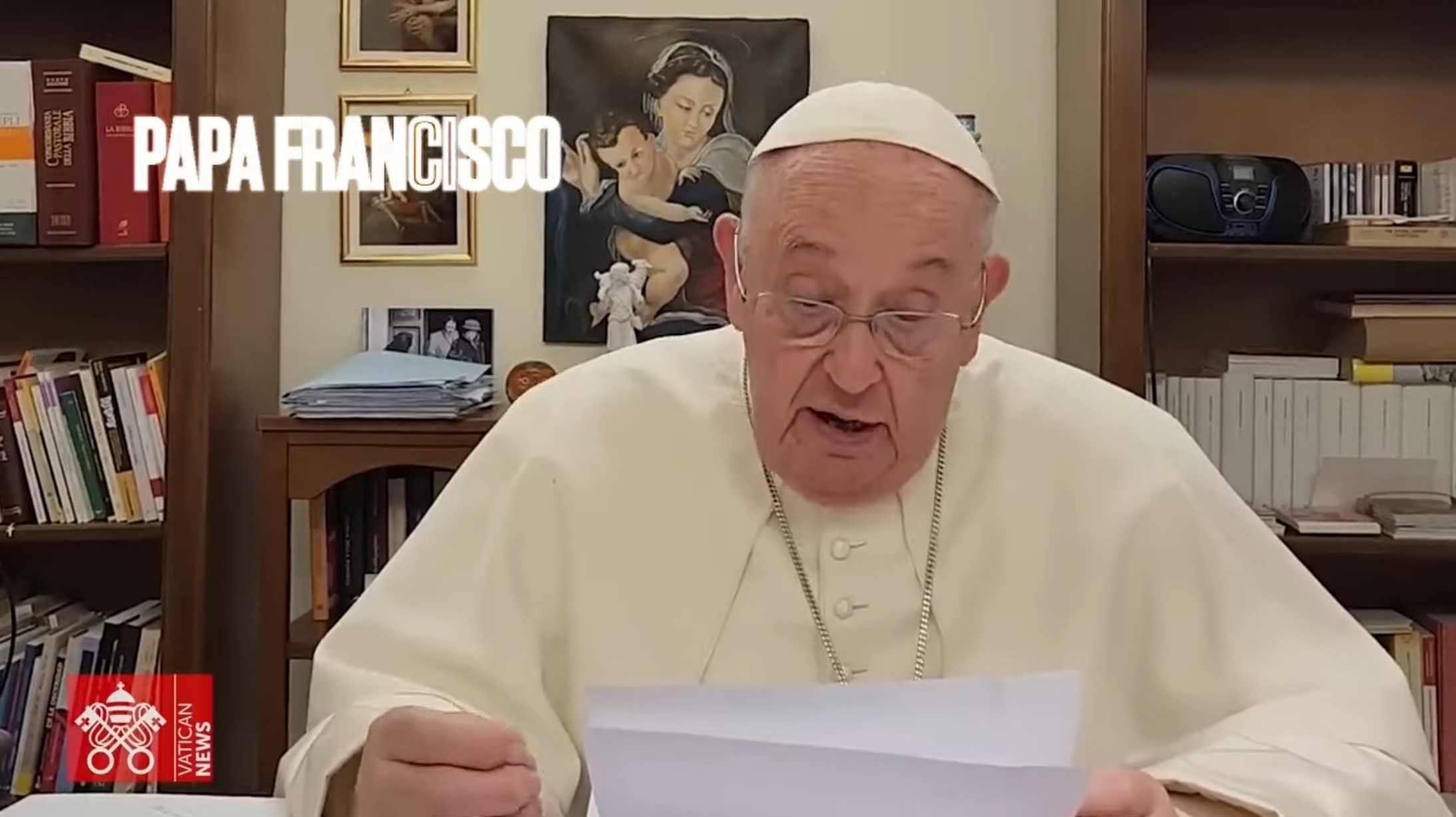
While Pope Francis calls for global, undivided drug prevention, during the Paris Olympics some ex-priests and some French anti-religious agencies (under investigation by the Court of Accounts), disregarding the common good, criticise the prevention actions of other religions.
In a moving address to the city of Rosario, just over a month before the Paris Olympics, Pope Francis highlighted the relevance of addressing contemporary challenges with holistic and collaborative solutions. He emphasized that achieving peace implies the joint commitment of all social, political and civic entities.
“All social, civil and religious institutions must be united to do what we do best and together create community. We can all collaborate and be part of sporting, educational and community spaces.“
Pope Francis
“On the road to peace, complex and integral answers must be found, with the collaboration of all the institutions that make up the life of a society,” he affirmed.
One of the central themes of the Pope’s message was the need to address not only the supply but also the demand for drugs through prevention and assistance policies. Pope Francis criticised state inaction in this area, stating that “the silence of the state in this matter only naturalises and facilitates the promotion of the consumption and commercialisation of drugs“.
He called for the rehabilitation of politics as a form of charity and promotion of the common good, assuring that “No one of good will can feel excluded or be excluded from the great task of making society a place where all can experience themselves as brothers and sisters“.
The Pope also highlighted the fundamental importance of democracy in the fight against drug trafficking, calling to ensure the autonomy of the judiciary to combat corruption and money laundering: “Every member of the judiciary is responsible for guarding its integrity, which begins with the uprightness of its heart“.
Furthermore, Pope Francis appealed to the social responsibility of the private sector, noting that “There is no good economy without a good businessman. Unfortunately, there is also a bad economy without the complicity of part of the private sector“. He urged entrepreneurs to commit themselves not only to avoid associating with criminal groups, but also to contribute to social welfare.
Finally, he urged all social, civil and religious organisations to collaborate together to create areas of encounter in the most needy communities, stating that “No one is saved alone, even in private neighbourhoods one can find insecurity and the threat of consumption for one’s own children“.
In this situation, it is counterproductive that some former priests, such as Luis Santamaria del Rio who criticises many Christian denominations, as well as French anti-religious agencies such as MIVILUDES, criticise the attempts of other religions to combat drug use. “Instead of offering solutions, these dissenting views seem to forget that the drug problem goes beyond religious differences and needs a united and supportive approach” said a passerby. Pope Francis reiterated his support for those working for justice and community building in difficult contexts, adding that “Charity will be the most explicit proclamation of the Gospel to a society that feels threatened“.
Asked about their drug prevention activities, Ivan Arjona, Scientology’s European representative, told this newspaper that “it seems that distributing 1 million drug prevention booklets during the Paris Olympics, with French, Spanish, Belgian, German, Hungarian, English, American, Italian and other volunteers from all over the world, even if it hurts the vested interests of any heartless person who could call it propaganda, is a good announcement of the Gospel, charity and love for society without looking at political or religious labels“.
In a moving finale, Pope Francis asked for the protection of Our Lady of the Rosary and sent his blessing to all, highlighting the church’s ongoing commitment to helping victims of all kinds of violence. In an increasingly complicated world, his message is a strong reminder that achieving peace and justice requires creativity and commitment from everyone.
Health & Society
What is tomato juice good for?
One of the most commonly consumed fruits is the tomato, which we often think of as a vegetable. The tomatoes juice is wonderful, we can add other vegetable juices, a little fresh lemon juice or consume it pure. If you like tomato juice, be sure to drink homemade, not from the supermarket.
In addition to being tasty, it is also useful, see why.
1. It is a rich source of vitamins A and C – Tomato juice is a great drink for strengthening immunity, which is also useful for the health of the eyes, skin, bones, teeth. Consumption of tomato juice is believed to help collagen synthesis. The drink also contains lutein and zeaxanthin, which together with vitamins A and C help fight free radicals.
2. Prevents High Cholesterol – Another reason to add tomato juice to our daily menu is that it can help balance cholesterol. Tomato juice is also rich in vitamin B3, which is known to stabilize cholesterol. The fiber in it can also lower blood pressure, scientists believe.
3. Aids in weight loss – Another great benefit of tomato juice is that it helps in weight loss. It is low in calories but provides us with important nutrients and hydration.
4. Improves bowel movements – The fiber in tomato juice keeps the liver healthy, aids digestion, reduces the risk of constipation and thus regulates and supports bowel movements.
5. Contributes to the detoxification of the body – The liver and kidneys are responsible for detoxifying our body and improving metabolism.
6. Rich in Lycopene – The red color of tomatoes is due to a fat-soluble antioxidant known as lycopene. Scientific studies have proven that lycopene protects the body from various types of cancer such as breast cancer, prostate cancer, colorectal cancer, lung cancer, coronary artery disease and others.
7. Energizes the body – Tomato juice is high in antioxidants that help eliminate free radicals in the body. In this way, not only the aging processes of the body are slowed down, but we also feel more energetic.
8. It is good for the heart – According to Western studies, the intake of lycopene can reduce the risk of coronary heart disease and cardiovascular diseases by 30%. Tomatoes are rich in lycopene.
9. It is good for bones – Vitamin K, which is contained in good quantities in tomatoes, is of great importance for bone health. The synthesis of osteocalcin, which is believed to play an important role in building bones, depends on vitamin K, scientists believe.
10. Strengthens the hair – We know that the way we eat determines to a large extent the condition of our hair. Just as there are foods and drinks that harm her, there are also those that are good for her. Tomato juice and the useful nutrients it is rich in contribute to improving the condition of our hair.
-

 Politics6 hours ago
Politics6 hours agoPoland’s Former Prime Minister Mateusz Morawiecki Eyes Leadership of European Conservatives and Reformists
-

 EU & the World6 hours ago
EU & the World6 hours agoAshanti & Nelly Welcome First Child Together & Reveal Baby Boy’s Name
-

 Sports6 hours ago
Sports6 hours agoTurin, Urbano Cairo retorts to fans on Bellanova
-

 EU & the World6 hours ago
EU & the World6 hours agoDoes Travis Kelce Appear in Swift’s ‘I Can Do It With a Broken Heart’ Music Video?
-

 Sports6 hours ago
Sports6 hours agoDucati, Pecco Bagnaia-Marc Marquez duel: “Valentino Rossi ready to step in”
-

 EU & the World6 hours ago
EU & the World6 hours agoLil Jon Brings the House Down at the 2024 DNC With ‘Turn Down for What’
-

 Sports6 hours ago
Sports6 hours agoAtalanta: PSG-Lookman, there is news
-

 Sports6 hours ago
Sports6 hours agoJoan Mir spooked by Ducati



